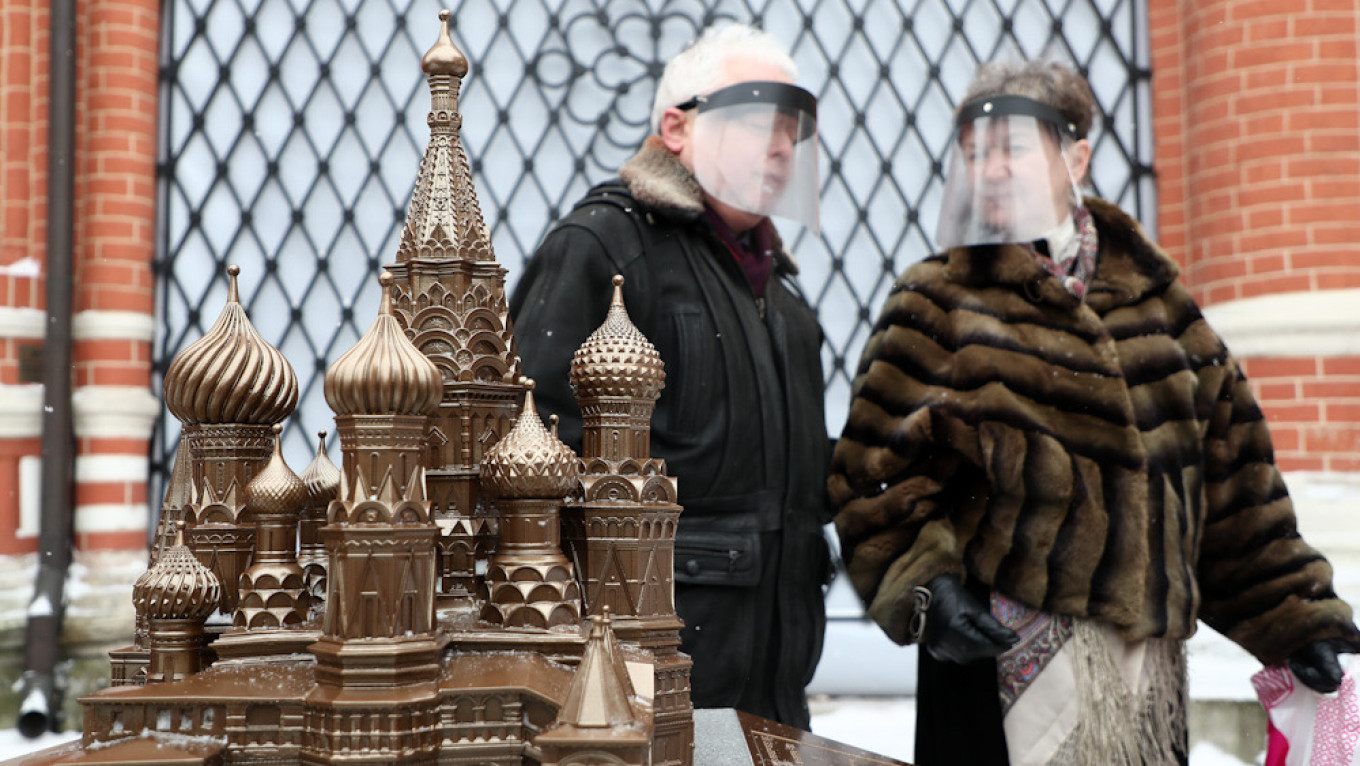- Joined
- Apr 18, 2013
- Messages
- 94,343
- Reaction score
- 82,727
- Location
- Barsoom
- Gender
- Male
- Political Leaning
- Independent

How The Kremlin’s Years of Conspiracy Spreading Are Biting Back - The Moscow Times
Opinion | For decades Russia has been involved in the circulation of conspiracy theories. Now very few Russians believe in Covid-19.
3/1/21
A whopping 64% of Russians believe that the coronavirus was invented in a lab, while just 23% believe it appeared naturally. Some 62% are not willing to get a Sputnik V jab, and 69% are not afraid of catching the virus. These astonishing results were released by Russia’s leading independent pollster the Levada Center today. For experts who have observed the way the pandemic developed in Russia and the state’s response to it this is hardly breaking news. Throughout 2020, Russians demonstrated a steady lack of belief in the existence of Covid-19 and showed distrust toward the vaccines created by Russian scientists. In my view, there are two reasons for this gloomy state of affairs — the global power of social media which transcends borders and languages and the Russian state’s decades of spreading anti-Western conspiracy theories. The Covid-19 pandemic is without a doubt the first global conspiratorial pandemic, which the WHO has also called the infodemic. Then came the Covid dissidents who did not believe in the virus and accused governments, or intelligence labs, or Bill Gates of using the pandemic to gain global power over humanity and reshape the global economy in their interests. All these theories are easily available online and it can take just moments to find the most suitable conspiratorial reading of the Covid-19 pandemic on Twitter or Telegram.
In fact, the Russian segment of the web almost from the start of the pandemic responded with conspiracy theories that were very similar to the Western ones. Some celebrities also joined this campaign and claimed that the virus was developed in a lab and that 5G masts are the key to its spread. Every Russian with WhatsApp messenger received conspiratorial stories at least once during the past year. The Kremlin has been actively involved in spreading anti-Western conspiracy theories for almost two decades. The fact that Putin himself has not yet had a Sputnik-V jab doesn’t increase trust in the vaccine. In a way, the Kremlin became caught in its own trap. Sowing mistrust, promoting tabloid-like conspiracy theories and at times dropping conspiratorial hints about U.S. bioweapons being used against Russians has contributedto the growth of skepticism and beliefs in conspiracy theories. Even if many people in Russia support Vladimir Putin as a leader, they are also unhappy with the state institutions they deal with on a daily basis, be they concerned with education, health or the legal system. These are the institutions that have the biggest influence on people’s wellbeing, and they know they are crooked, poorly managed and unable to produce expert knowledge. What helps Russians to survive under these circumstances is the centuries-long reliability on informal networks and distancing from the state.
In an example of poetic justice, the Kremlin itself is now caught in a disinformation loop that it created decades ago.
Even Vladimir Putin himself distrusts the Russian Sputnik COVID vaccine and refuses to get jabbed.
